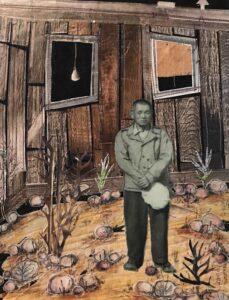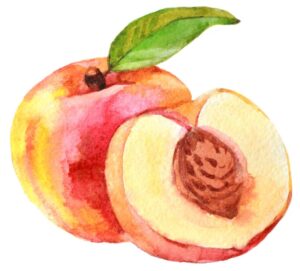[ad_1]
Final yr, my household and I had the respect of listening to artist Jeanie Kashima, a longtime good friend of my dad and mom, talk about her wonderful collages at Rosie the Riveter WWII House Entrance Nationwide Historic Park. Jeannie is Japanese American, and he or she was born within the Topaz Relocation Heart in Utah the place her household was imprisoned throughout World Battle II. That have impressed her collages.

Be taught extra about Jeanie and her paintings.
Lots of people don’t know a lot about this darkish time in American historical past. However I believe it’s essential for us to keep in mind that in 1942, the U.S. authorities pressured Japanese Individuals (lots of them US residents) into “relocation facilities” due to an government order President Roosevelt issued in response to the bombing of Pearl Harbor. Households had been incarcerated for as much as 4 years.

After Jeanie’s speak, I learn this staggering statistic within the park’s Customer Schooling Heart: Within the Nineteen Forties, previous to the internment of Japanese Individuals, “Japanese farmers had been answerable for 40 % of all greens grown in California, together with almost one hundred pc of all tomatoes, celery, strawberries and peppers.” Internment modified all of that. By 1960, three-fourths of America’s Japanese American farmers had been now not farming. In lots of circumstances, they farmers had been pressured off their land and couldn’t reclaim it once they returned residence.
There’s no approach to calculate the devastation that internment prompted—not solely to households and communities however to our meals system.
Right here at The FruitGuys, now we have a private connection to a few of these farming households. Farmers Joe Takashi Masumoto and Carole Yukino Sugimoto had been each imprisoned with their households from 1942–1946 on the Gila River Relocation Heart within the Arizona desert. Two years after their launch, they bought married and began Masumoto Household Farm in Del Rey, California, rising forty acres of grapes, plums, peaches, and nectarines.

Now, nearly eighty years later, the Masumoto household remains to be farming stone fruit. Their farm has been licensed natural because the Nineteen Eighties, they usually’re identified for his or her vibrant and juicy Solar Crest peaches, which they’ve grown for over fifty years. Firstly of every summer season, my group and I begin counting down the times till we will style Masumoto peaches and add them to our fruit packing containers.
 We’re honored to characteristic Masumoto peaches every summer season and like to assist their household farm. You’ll be able to be taught extra concerning the farm right here.
We’re honored to characteristic Masumoto peaches every summer season and like to assist their household farm. You’ll be able to be taught extra concerning the farm right here.
Could is Asian American and Pacific Islander Heritage Month, and I wrote this article in honor of the Masumoto household and all the different AAPI farmers we work with at The FruitGuys. Thanks on your endurance, your dedication, and, most of all, your fabulous fruit.
The submit A Story of Jail, Peaches, and Persistence appeared first on The FruitGuys.
[ad_2]

